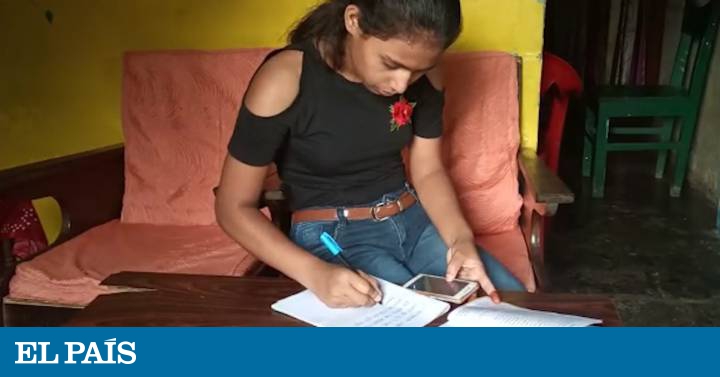School closures in 194 countries left 1.6 billion children, roughly 90% of the world's students, out of school at the beginning of April.
The lives of girls like Fikoh have changed a lot.
At the peak of the covid-19 pandemic, more than 700 million young people on all continents were unable to go to school, forcing them to reorganize very different daily lives.
Many adolescents run the risk of never returning to the classroom, as families turn to child marriage or forced labor to ease their financial burdens.
MORE INFORMATION
First installment: The pandemic through the eyes of adolescent girls
Jovani wants to be a doctor, despite covid-19
As in other countries around the world, schools in Mali are closed, and Adiaratou has had to find new ways to do her homework.
For other girls, the obstacles to finishing this course are different.
Aside from the logistical problems of distance learning, they also have to face the loss of the added benefits of going to school.
In recent months, school has changed for almost everyone, and we are becoming more aware of what a disruption to teaching entails.
But for many students, covid-19 is not the only reason that their chances of studying have been interrupted.
Laetitia is part of Chad's Children's Parliament, an after-school program that involves large numbers of ambitious young people with ideas on how to tackle some of the country's biggest problems.
For Laetitia, some of them have very personal repercussions.
Gender inequality and stigmatization prevent girls' education from progressing around the world.
This situation may change, but we need to ensure that we provide young girls with safe educational centers where they can learn and advance, and that we empower them to make their own decisions.
If we want to protect the abilities, ambition and future of these girls, we have to act together.
However, the first step may be simply to listen.
Nankali Maksud
is a senior consultant to the Unicef malpractice team and
Kristin Andersson
is an officer in UNICEF's child protection section.
The section On the Front Line is a space in Planeta Futuro in which members of NGOs, organizations and international institutions, who work in the field, narrate their personal experiences in relation to the impact of their activity.
They are always written in the first person and the responsibility for the content rests with the authors.
You can follow PLANETA FUTURO on Twitter and Facebook and Instagram, and subscribe to our
newsletter
here
.

